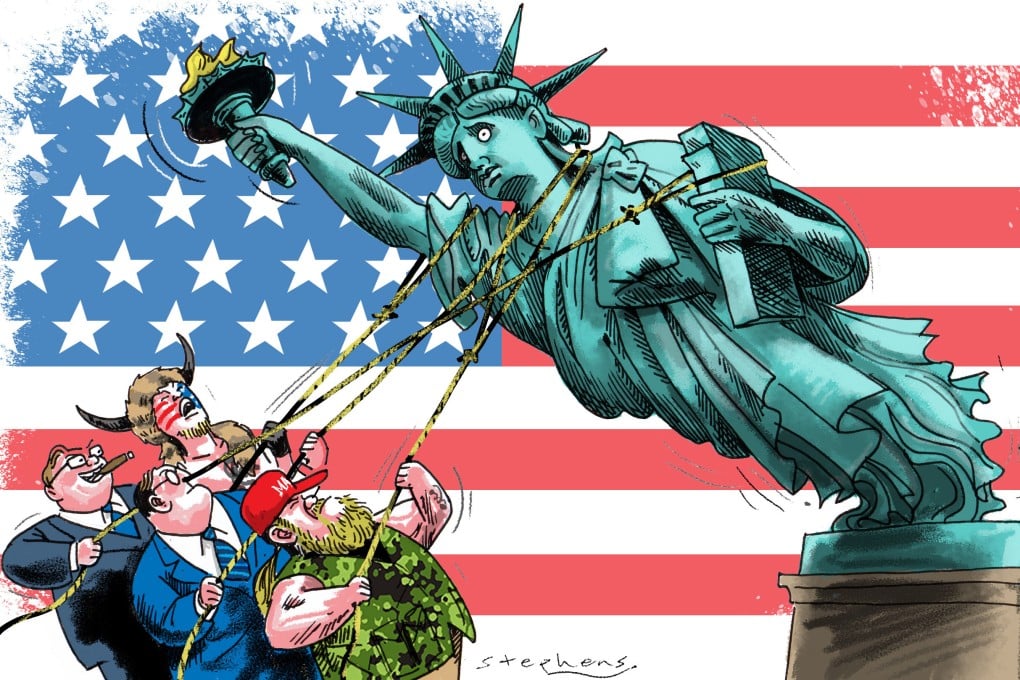Opinion | As China rises, can the US arrest its own destruction?
- Don’t expect America to come back stronger after its Afghanistan debacle, like it did post Vietnam
- The difference between 1975 and now is that neoliberalism has hollowed out the US, undermined its government, and deepened inequality and social tensions

In the face of such a loss, the US went on to become the sole superpower. Post Afghanistan, however, America’s prospects seem reversed, with the rise of China and domestic problems the two main factors.
Between 1975 and today, the most visible difference is the decline in US manufacturing, a generator of middle-class wealth. Over that period, the US’ share of the global economy has fallen from 28 per cent to 15.9 per cent (with forecasts of 14.76 per cent by 2026), while the debt-to-GDP ratio rose from 32 per cent to 125 per cent.
The feedback loop of war, debt and now outsourcing have taken their toll on the US economy. An example of the latter is the Pentagon paying between a third and a half of the US$14 trillion spent on the Afghan war to private military contractors.


